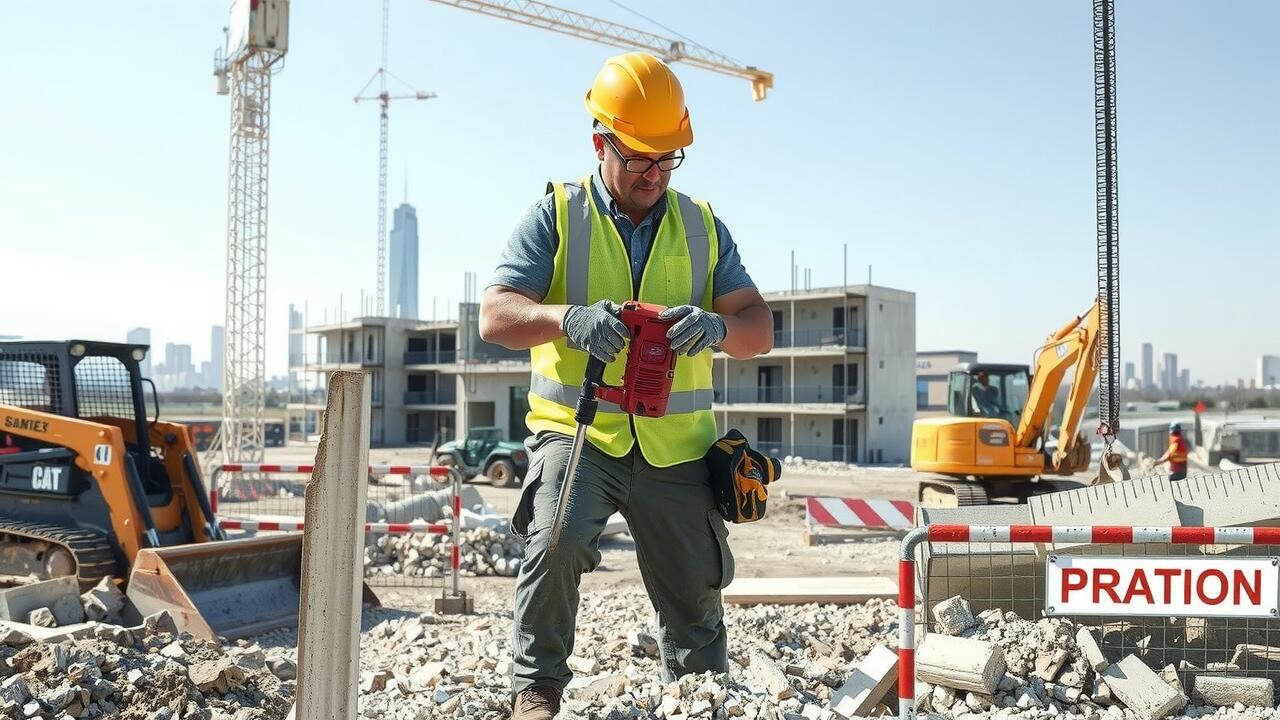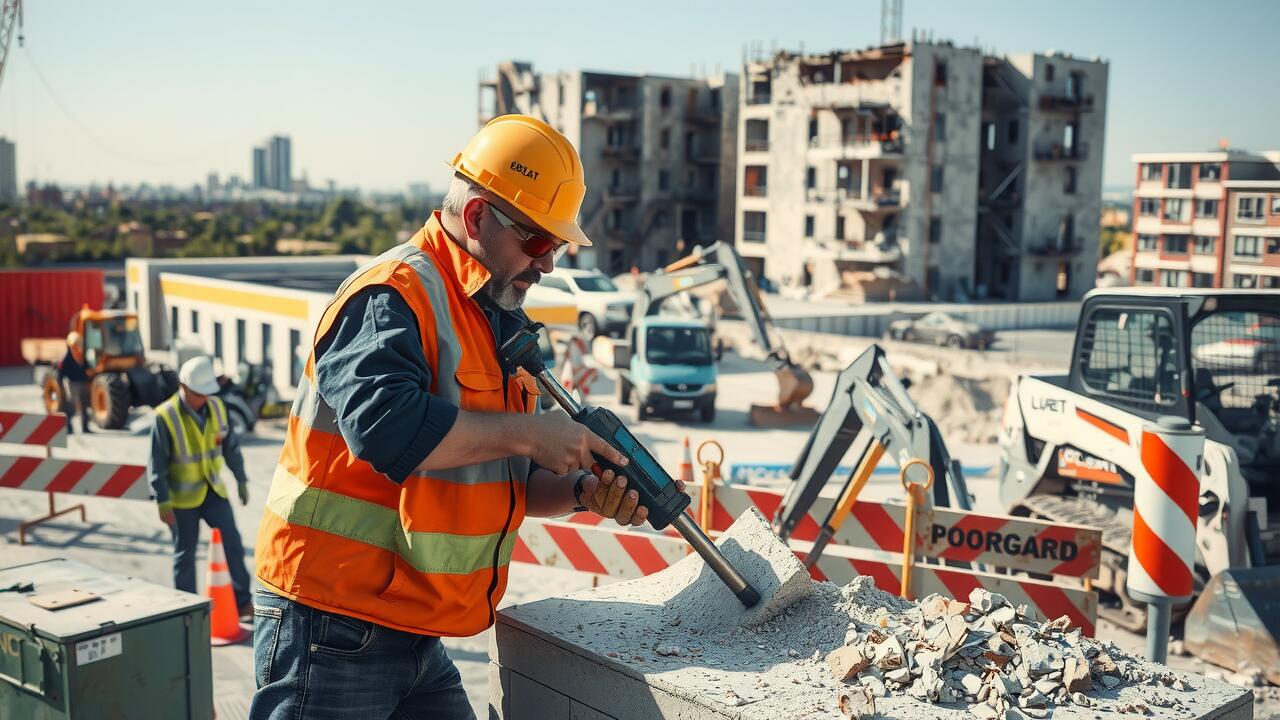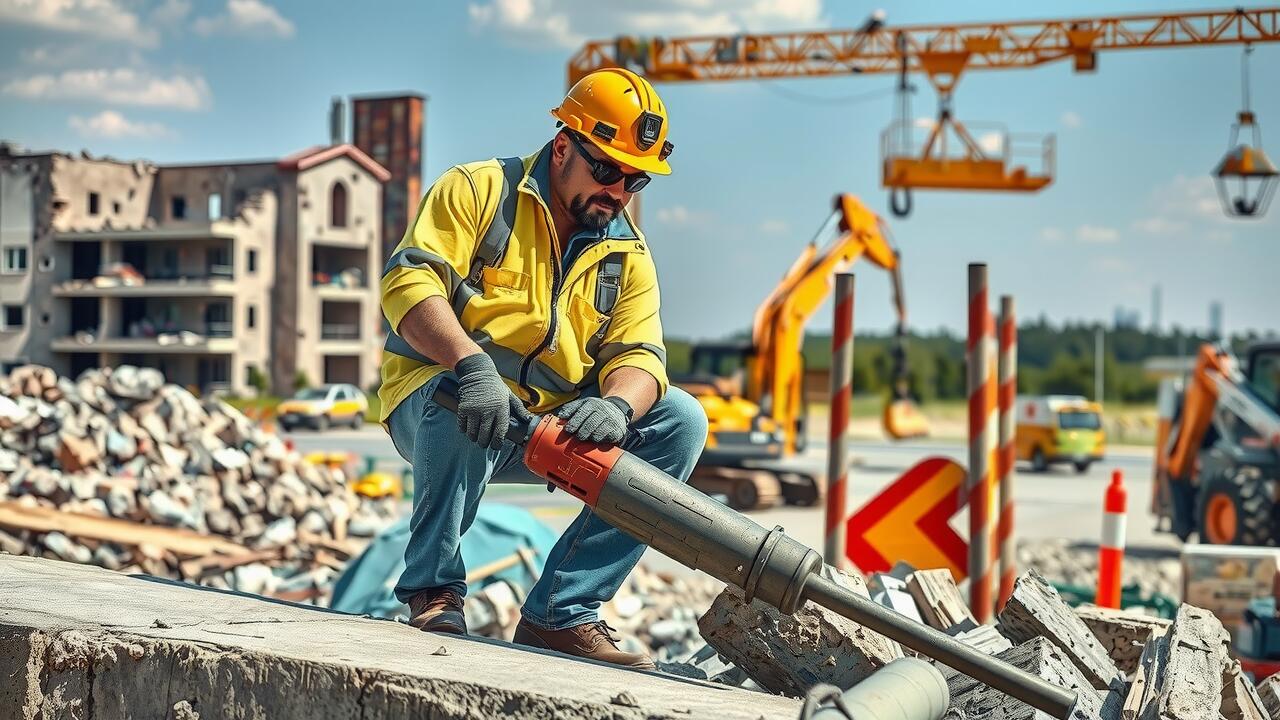
Table Of Contents
Hiring a Professional vs. DIY
When considering concrete demolition, homeowners often face the choice between hiring a professional and taking the DIY approach. Professional demolition teams possess the expertise, tools, and knowledge of safety protocols required to handle these projects efficiently and effectively. They can navigate challenges that arise during demolition, ensuring a thorough and safe removal of concrete materials. This can save significant time and reduce the risk of injury or costly mistakes that may occur with inexperienced hands.
On the other hand, opting for a DIY concrete demolition project can be appealing for those looking to save money. With the right tools and a solid plan, it is possible to tackle smaller jobs without significant financial investment. However, this approach requires a good understanding of the demolition process, safety precautions, and local regulations. Homeowners must also be prepared for the physical demands of the task, as concrete can be heavy and difficult to manipulate without proper equipment. Assessing one’s capabilities and resources is essential before deciding on the best method for concrete demolition.
Weighing the Pros and Cons
Homeowners in San Diego face important decisions when considering concrete demolition. Opting for professional services provides access to specialized equipment and expertise, ensuring the job is handled correctly and safely. Professionals can navigate local laws and regulations, minimizing the risk of potential fines and ensuring compliance with safety standards. On the other side, a DIY approach may save money and offer a sense of accomplishment for those experienced with heavy-duty tasks. However, it requires understanding the intricacies of concrete demolition, from proper methods to risk management.
Assessing the pros and cons reveals critical factors that may influence a homeowner’s choice. Professional contractors bring efficiency and a guarantee of quality, while DIY enthusiasts may enjoy the flexibility and control over the project. Homeowners need to consider their own skill levels, available time, and the potential for future complications. Concrete demolition, whether approached as a personal project or outsourced, demands thoughtful planning to ensure the best outcomes for the property.
Local Regulations and Permits
Before undertaking any concrete demolition project in San Diego, homeowners must familiarize themselves with local regulations and permit requirements. The city has specific laws governing demolition activities to ensure safety and minimize environmental impact. Typically, a permit is required for removing concrete, especially if it involves structural elements. Homeowners should check with the local building department to obtain the necessary documentation and ensure compliance with zoning laws.
Understanding San Diego’s demolition laws is crucial for a smooth process. The regulations may include guidelines on noise levels, timeframes for work, and waste disposal practices. Homeowners can avoid potential fines and delays by adhering to these regulations. It’s advisable to consult with local authorities or a professional contractor who can provide guidance and help navigate the permit application process effectively.
Understanding San Diego’s Demolition Laws
Homeowners planning a concrete demolition project in San Diego must navigate a set of regulations designed to ensure safety and compliance. Prior to starting any demolition work, it’s essential to obtain the necessary permits from the local authorities. The city’s regulations often address not only the size of the project but also potential impacts on surrounding properties. Neglecting to secure appropriate permits can lead to fines or delays in the project timeline.
In addition to permits, homeowners should be aware of specific guidelines related to noise, dust, and waste disposal during concrete demolition. These regulations aim to minimize disruption to the community and protect the environment. Engaging with local government resources can provide clarity on any restrictions or requirements that may apply to individual projects. Staying informed will help ensure that the demolition process is executed smoothly and legally.
Environmental Considerations
When planning a concrete demolition project, homeowners should be aware of the environmental impact associated with the process. Concrete is not biodegradable, and its demolition can generate significant waste. Proper disposal is crucial to mitigate harm to the environment. Recycling concrete is often a viable option, as it can be repurposed for use in new construction or as base material for roadways and landscaping. Homeowners should explore local recycling facilities that accept concrete to minimize landfill contributions.
Additionally, it is essential to consider the potential for hazardous materials when performing concrete demolition. Structures built prior to the 1980s may contain asbestos or lead paint, which can pose health risks if disturbed. Proper assessment of the demolition site should be conducted to identify any hazardous materials that need special handling. Implementing strict safety protocols protects both the workers involved and the surrounding community during the concrete demolition process.
Sustainable Disposal Practices
Concrete demolition generates significant waste, which necessitates responsible disposal practices to minimize environmental impact. Homeowners should explore recycling options for concrete debris. Many facilities in San Diego accept broken concrete for recycling, transforming it into aggregate for new construction or landscaping projects. By choosing recycling, homeowners contribute to reducing landfill waste while promoting sustainability within the community.
Proper disposal of hazardous materials present in older concrete structures is equally critical. Paint, coatings, or embedded metals may require specialized handling. Homeowners should research and comply with local regulations regarding waste disposal to ensure they are following necessary guidelines. Engaging in sustainable disposal practices aligns with a commitment to environmental stewardship and can help mitigate the ecological footprint of concrete demolition projects.
FAQS
What are the benefits of hiring a professional for concrete demolition?
Hiring a professional can ensure safety, efficiency, and adherence to local regulations. Professionals have the necessary equipment and experience to handle complex demolition tasks.
Can I perform concrete demolition myself in San Diego?
Yes, you can perform DIY concrete demolition; however, you must be aware of local regulations and permits, and ensure that you have the right tools and safety equipment.
What permits do I need for concrete demolition in San Diego?
Permits may vary depending on the scope of the demolition project. It’s important to check with the City of San Diego’s Planning Department to understand specific requirements for your project.
What should I do with the concrete debris after demolition?
It’s recommended to follow sustainable disposal practices, such as recycling the concrete or hiring a disposal service that specializes in construction waste to minimize environmental impact.
Are there any environmental considerations I should be aware of?
Yes, it’s essential to consider sustainable disposal practices, such as recycling materials, using eco-friendly demolition methods, and ensuring that hazardous materials are appropriately managed during the demolition process.

